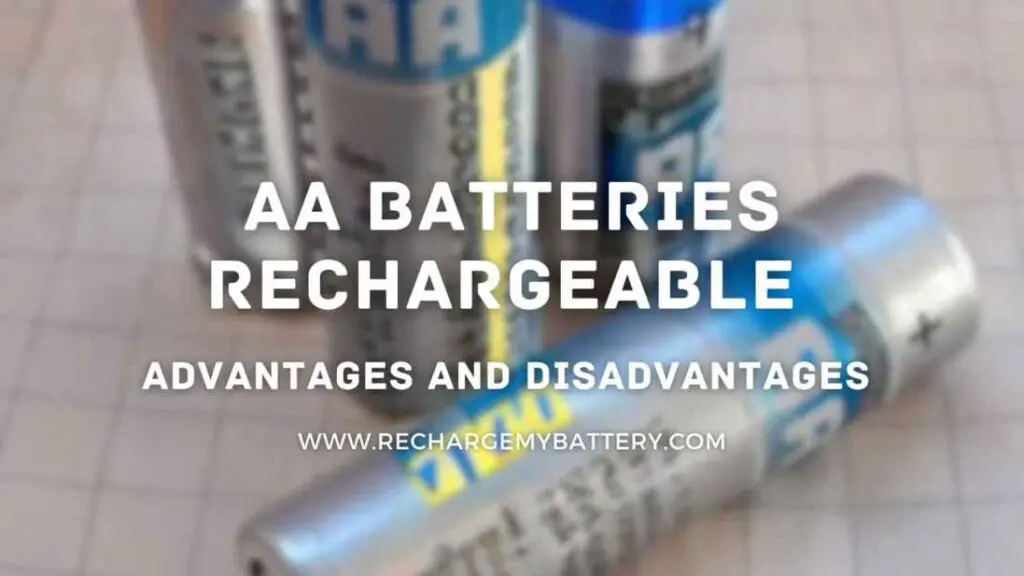A common question that arises is whether all 12V rechargeable batteries are interchangeable. In this article, we will explore the compatibility of 12V rechargeable batteries and shed light on the factors that determine their interchangeability.
1. Introduction
In this digital age, where we heavily rely on battery-powered devices, understanding the compatibility of rechargeable batteries is crucial. Many devices operate on 12 volts, making 12V rechargeable batteries a popular choice. However, it’s important to determine whether these batteries are truly interchangeable to avoid any potential issues.
2. Understanding 12V Rechargeable Batteries
A 12V rechargeable battery refers to a battery with a nominal voltage of 12 volts. These batteries are commonly used in a wide range of applications, including automobiles, power tools, and renewable energy systems. They are designed to provide a steady power supply and can be recharged multiple times, making them cost-effective and environmentally friendly alternatives to disposable batteries.
3. Types of 12V Rechargeable Batteries
There are several types of 12V rechargeable batteries available in the market. The most common ones include lead-acid batteries, lithium-ion batteries, and nickel-metal hydride (NiMH) batteries. Each type has its own unique characteristics, advantages, and limitations.
4. Factors Influencing Interchangeability
The interchangeability of 12V rechargeable batteries depends on various factors, including chemistry, size, shape, voltage, and capacity. It’s important to consider these factors before attempting to swap batteries between devices to ensure compatibility and avoid any potential damage or malfunctions.
5. Compatibility within the Same Chemistry
Batteries of the same chemistry, such as lead-acid or lithium-ion, are generally interchangeable within devices designed to accommodate that specific chemistry. However, even within the same chemistry, variations in size, shape, and capacity may exist, which can affect compatibility. It’s crucial to check the manufacturer’s specifications to ensure proper fitting and performance.
6. Compatibility Across Different Chemistry
Interchanging batteries of different chemistries, such as using a lithium-ion battery in a device designed for lead-acid batteries, is not recommended. Different chemistries have distinct voltage characteristics, charging requirements, and discharge profiles. Attempting to use incompatible batteries can lead to damage, reduced performance, or safety hazards.
7. Battery Management Systems and Interchangeability
Many modern devices incorporate battery management systems (BMS) to optimize battery performance, prevent overcharging or over-discharging, and ensure safety. BMSs are often designed to work with specific battery chemistries and may not be compatible with others. Therefore, it’s essential to consider the BMS requirements when determining battery interchangeability.
8. Importance of Battery Specifications
To ensure proper interchangeability, it’s crucial to refer to the manufacturer’s specifications for both the device and the battery. These specifications provide valuable information about voltage, capacity, dimensions, and chemistry, allowing you to make informed decisions regarding battery compatibility.
9. Safety Considerations
When dealing with rechargeable batteries, safety should always be a top priority. Mishandling or using incompatible batteries can lead to leakage, overheating, or even explosions. To ensure safety, follow proper storage, charging, and disposal practices recommended by the manufacturer.
10. Best Practices for Using 12V Rechargeable Batteries
To maximize the performance and lifespan of 12V rechargeable batteries, here are some best practices to consider:
- Always use batteries that meet the device’s specifications.
- Store batteries in a cool and dry place.
- Avoid overcharging or over-discharging the batteries.
- Regularly inspect batteries for signs of damage or deterioration.
- Dispose of old or damaged batteries according to local regulations.
11. Common Misconceptions
There are some common misconceptions regarding the interchangeability of 12V rechargeable batteries. It’s important to address these misconceptions to avoid potential problems:
- All 12V rechargeable batteries are not created equal; their compatibility varies based on chemistry, specifications, and device requirements.
- Mixing batteries of different chemistries or capacities can lead to performance issues, safety hazards, or even irreversible damage.
- Attempting to modify devices or batteries to force compatibility can be dangerous and void warranties.
Conclusion
In conclusion, the interchangeability of 12V rechargeable batteries is not universal. Compatibility depends on various factors, including chemistry, size, voltage, and device specifications. It is crucial to consult the manufacturer’s guidelines and specifications to determine battery compatibility and ensure optimal performance and safety.
FAQs
Q1. Can I use a lead-acid battery in a device designed for lithium-ion batteries? It is not recommended to use batteries of different chemistries in devices not specifically designed for them. Doing so can lead to compatibility issues and potential damage to the device or battery.
Q2. Are all lithium-ion batteries interchangeable? Not all lithium-ion batteries are interchangeable. Even within lithium-ion chemistry, variations in voltage, capacity, and size can affect compatibility. It is essential to consult the manufacturer’s specifications for proper battery selection.
Q3. Can I mix batteries of different capacities? Mixing batteries of different capacities is not advisable. It can lead to uneven discharge, reduced performance, and potential damage to the batteries or the device.
Q4. How long do 12V rechargeable batteries typically last? The lifespan of a 12V rechargeable battery depends on various factors, including chemistry, usage patterns, and maintenance. On average, these batteries can last several years with proper care.
Q5. Can I recharge a 12V battery with a charger of a different voltage? Using a charger with a different voltage than the battery’s specifications can lead to improper charging, reduced performance, and potential safety hazards. Always use chargers recommended by the battery manufacturer.

